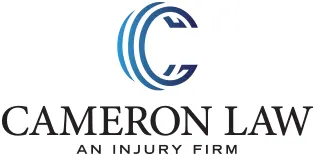Think You’re Being Protected by Safety Laws at Amusement Parks? Think Again

Let’s say that you go to an amusement park, someplace with rides and roller coasters. Those look like pretty dangerous activities—you’re being hurled in the air at high speeds by something mechanical that looks like it’s just barely hanging onto the tracks. Are you safe? And who is keeping you safe?
Few Injuries But Few Laws
The good news is that statistically, you are safe; there are relatively few amusement park accidents as compared to the number of people who ride them, when you include both fixed theme parks and traveling “carnivals” that have rides (by some estimates, less than 1 injury per million rides).
But there is always a risk, and accidents do happen. And you may be surprised to know that despite the potentially deadly risk of an accident on an amusement park ride, there are frighteningly few rules, laws, regulations, government actors or agencies that are keeping you safe.
The Federal Government
The federal government can’t do much to help you, because they have no jurisdiction over parks that are fixed in one location.
That means that federal laws and regulations are limited to traveling fairs and carnivals, and while those are well attended, and certainly need safety oversight, that leaves a gaping hole when it comes to fixed amusement parks which tend to be larger, and which often have even more dangerous rides.
The federal government has tried to fix this and expand its reach, but as you can imagine, the large, fixed amusement parks have the most lobbying dollars, and thus, it is hard to pass legislation that requires more oversight of these fixed-location parks.
State Laws
Nevada is one of just a few states that have absolutely no state laws that regulate fixed amusement parks or rides. That includes having no laws that require inspections or which require parks that do have injuries or accidents, to report them.
In states like Nevada, with no, or limited state oversight, many amusement parks will self-regulate, by complying with industry-standard safety guidelines.
Other states won’t adopt their own safety regulations, but rather, will simply adopt the industry standards set forth by many of the major amusement park safety organizations.
With no laws, that means that there is no mandatory reporting of accidents or injuries. That means that the general public simply doesn’t know how dangerous a park, or a ride in a park may be; obviously it isn’t in a park’s best interest to report accidents.
You Can Still Get Compensation
But the lack of laws doesn’t mean that if you are injured at an amusement park, that you have no recourse; an amusement park doesn’t have to be breaking a written law to be negligent.
Negligence is based on common sense, and what a reasonable person (or amusement park) would or would not do. That means that even in states or parks that have no laws that regulate parks, those parks can still be liable to guests who are injured in their parks, or on their rides.
Injured on a ride or at an amusement park? Let us help. Contact the personal injury attorneys at Cameron Law today at 702-745-4545 for a free consultation.
Sources:
news.wgcu.org/2023-07-06/heres-what-to-know-about-roller-coaster-safety-after-2-recent-scares
theregreview.org/2022/08/31/tunney-amusement-park-regulations-bumpy-ride/
iaapa.org/amusement-ride-safety/regulations-standards


